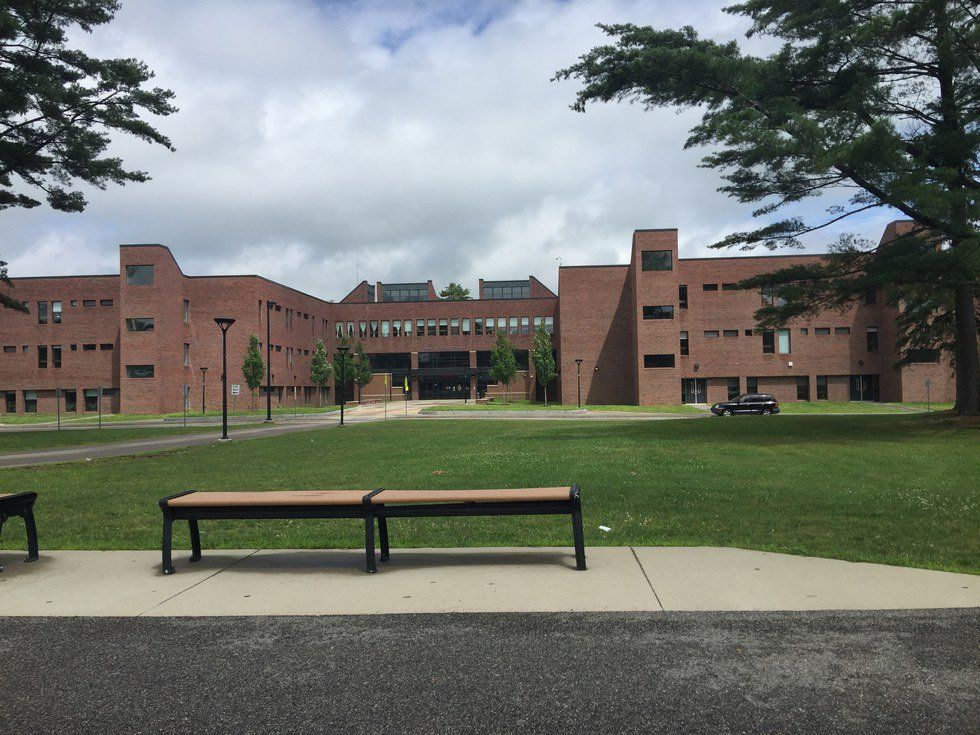Before they can read, we teach them the alphabet. Before they can drive, we teach them how to operate a vehicle. So, why do students so often reach voting age with a limited, or nonexistent, understanding of politics? Many receive little to no preparation for their civic coming-of-age. Less than 40 percent of 18–24-year-olds voted in the last presidential election, a number that might be dramatically increased if students were required to learn, or at least had the option of learning, the workings of democracy and current local and worldwide issues. Because young people are failing to participate in politics, leaders are failing to acknowledge their concerns. Why would they waste their time appealing to an audience who ultimately will not affect election results?
Participating in democracy is freedom in its purest sense. By voting, you cease being part of a controlled group and instead become one in control. Even though the final results of a vote may not align with your personal choices, your vote was counted. But casting an informed vote may be nearly impossible for young men and women with little or no political education. This is a multi-faceted issue. Most people seem to have some idea of who they want for president, whether this view is backed by their own research and beliefs or based on what their friends and family have told them. It can be difficult to take a stance on other issues, especially with so much pressure to conform to the bipartisan system.
Becoming fluent in the language of politics is no easy task, and I imagine that it will take me years before I am able to scroll through any major news website without having to do some background research on many of the headlines. If you want to learn how to put an air conditioner together, you can read an air conditioner owner’s manual. There is no easy way to dive head-first into political knowledge. Without a cultivated knowledge of how the political system works and what issues are currently being dealt with, it can be nearly impossible to read an article and end with even a basic idea of what the writer is saying. When I was in high school (and sometimes still today) I would try to read something that looked appealing on a news website, but would often find myself lost in a maze of Google searches and Wikipedia entries, trying to decipher what the writer was talking about.
Eventually, I got fed up with my own lack of knowledge. My high school offered political classes in very limited quantities, and I could never make one of them fit into my course schedule. During my senior year, I decided to self-study for an American Government course. Had I not been lucky enough to have a history supervisor who fully supported my pursuits and loaned me a set of textbooks that a publisher had sent him, I would have spent hundreds of dollars prepping for this course. This was the point when I realized how absurd it is for these courses to not be offered (or required) in all public schools.
The teachers at my high school were a blessing in another sense too — they always encouraged healthy debate among students. Two history teachers in particular come to mind. They were both able to relate their class content to current events and allowed students to share our opinions without fear of being punished. Many teachers are too worried about “crossing the line” and projecting their views onto their students. This is understandable, because of the teacher-student power dynamic that may be assumed in schools. Teachers are often seen as all-knowing, so if they promote specific views, students may feel pressured into agreeing. To some, this is reason enough to steer entirely clear of politics in the classroom, but there are other ways that these topics can be taught.
Civic education is not the same as standing in front of a classroom and lecturing on your own views. It’s cultivating the thought processes and critical thinking skills that are needed to make informed decisions. It can begin with teaching young children about the basic structure of the government, what voting is and what kinds of issues can be decided by a vote. Then, students should learn about The Constitution, as it provides a basis for all other laws. This can develop into giving older students relatively objective information about current issues and having them form (and defend — a practice that’s often forgotten) their opinions.
Civic education creates better democratic citizens and teaches students many other valuable lessons. Students learn to think critically and weigh the pros and cons of different scenarios. They will figure out how to get reliable information and evaluate sources. They will learn how to debate respectfully with their peers and to tolerate those whose opinions different from their own. And, perhaps most importantly, they will discover that their voices matter and are heard.





















